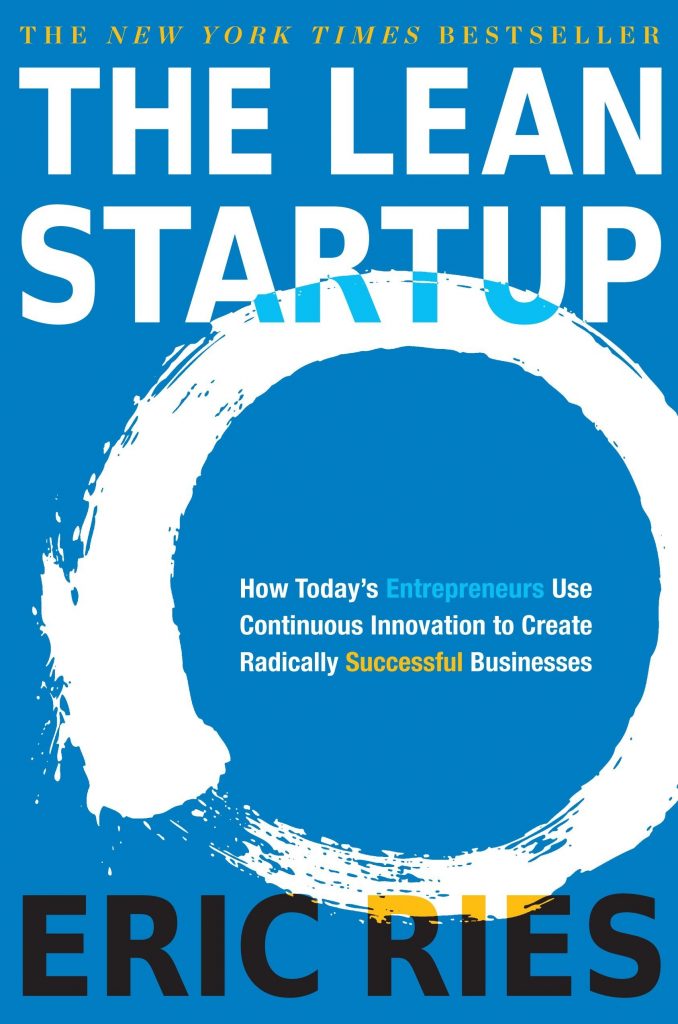“Entrepreneurs have crossed “the risk line” from the “Time-and-Effort Economy” to the “Results Economy.” For them, there’s no guaranteed income, no one writing them a paycheck every two weeks. They live by their ability to generate opportunity by creating value for their clientele.” – Dan Sullivan, Strategic Coach.
Here’s a disclaimer: this article is for people who want to really understand what entrepreneurship means from a practitioner’s point of view. It is about practicality and how to thrive in the chaotic #StartupLife. If you are not ready for behind-the-scenes usually not told in TV commercials or keynote speeches, stop reading right now.
Since the last decade or more, entrepreneurship has become a fancy and celebrated word. CEO/Founder/Owner status is sexy to add to your social media biog.
People love it – being “on my grind”, “a girl boss” is so cool to post on Twitter.
You hold your shoulders high at events and social gatherings because when you introduce yourself as a founder, it seems to correlate you’re among the crème de la crème of society.
Today, “quit your job and become an entrepreneur” is the Holy Grail for success and significance in many circles. Consequently, many young people just waffle through school with the hope of finding success in entrepreneurship.
It wasn’t always this way.
Although the first usage of the word “entrepreneur” dates as far back as 1850, popular pieces of literature suggest that the term “entrepreneurship” was coined around the 1920s. The reason is not far fetched. It used to be that you go to school, study hard and when you graduate, a job will be waiting for you. And, after many years of working hard and serving your company, you retire with a gold watch and other great benefits. Life was stable and the future was predictable for the most part.
Unfortunately, that assurance disappeared around the 20th century. Hence, you can study really hard in school and graduate with a mountain of bills and little pipeline opportunities. All around the world, there has been an increasing decline in middle-wage occupations. This decline has been attributed, in part, to the advent of computerization and the spread of automation. One WEF study suggests that five million jobs will be lost to AI by 2020.
In light of this, a majority of 12 million Africans entering the job market every year are left with no option than to take up the plow in creating their own opportunities through self-employment.
Furthermore, being an entrepreneur has never been any easier than it is today with internet penetration.
Alas, the media celebration of global business icons like Steve Jobs, Bill Gates, Mark Zuckerberg, etc is a development which has fascinated many to go into entrepreneurship. Startup founders are now seen as pioneers with a high level of respect in society – a figure that has risen steadily over the past decade or more. For many, entrepreneurship is a fast lane for making money and becoming famous.
Unfortunately, a year and a half into the journey, reality sets in and all of sudden, you discover that entrepreneurship is nothing close to the filtered pictures on social media or TV commercials.
No one tells you about the sleepless nights of backbreaking work in finding product-market-fit nor the ungodly amount of pressure startup founders go through daily in turning their ideas into a product or service. The filtered media reports often miss the days when it seems like someone has a hammer at both sides of your head…the days when you have to go through the threshing floor.
Everyone wants to be Zuck but in reality, only one in five businesses in Africa achieve scale in five years. According to a Venture Capital for Africa research, the road to startup funding in Africa is a long one, and 9 out of 10 ventures never make it. The worse case scenario, which we’re already seeing, is an increased rate in the suicide rate in the entrepreneurship space.
It is not my intention to paint a pessimistic view of entrepreneurship or to stop you from pursuing your ambition. On the contrary, my goal is to help you understand that, in practice, entrepreneurship is a long, arduous journey that requires stamina, education, and community support.
Not many people will read this article to this point. Making it this far means only one thing: you’re the one I wrote this piece for. To help you turn the impossible dream of creating your empire into an improbable, or perhaps inevitable concept, I have a few recommendations that might help you put in the pieces to weather the storm.
There’s no denying the fact that at any age or social status, entrepreneurship is a very risky business. It’s a world filled with risk, uncertainty, and chaos. Therefore, the day you decide to open up shop is the day you have to assume it’s now you and you alone. If you are expecting someone to do it for you, then perhaps, you should consider doing something else. Why? Even the people who could help you may choose to ignore you. You’re now the last man on the line so it’s up to you to put the puzzles of this journey together.
Again, nothing is given, everything must be earned.
It’s not enough to just do it. You need a certain kind of mindset and skills for this craft. At the early stages of my journey, I often thought that people will understand that I’m young and new in the process and so they’d “take it easy” with me. Come to find out, when you’re green, they’d screw you the hardest. They’d take advantage of your naivety and youth.
Hence, I strongly recommend that you avoid the overwhelming temptation to just do it and create some level of management, process, and discipline around your work. Because quite frankly, if you don’t, you will burn out. You will lose focus.
And so, I implore you to reverse engineer your thinking and figure out whether you need to find/keep your day job or join an already existing team. If you are just romantic about entrepreneurship and being your own boss, your hindsight could be your biggest obstacle. Without structure or skills, it’ll be difficult to create quality deliverables for your clients.
In his book, Disciplined Entrepreneurship: 24 Steps to A Successful Startup, Bill Aulet stated that the single necessary and sufficient condition for a business is a paying customer. Therefore, if you’re building a business, you must ensure that you’re making money.
But to make money, firstly, you have to solve a problem people actually have and are willing to pay for. As Eric Ries stressed in his book, The Lean Startup, you need to see the problem from the eyes of your target market. The market always wins; no matter how fancy your technology or service looks, if it does not solve an actual problem, people won’t care about it.
Also, if you have to offer your delivery at no cost, ensure you’re getting useful data in return or find a way to pass the cost onto someone else. Whether your business is a charity or for-profit, have sustainability at the back of your mind from day one.
Furthermore, understand that even though you created a super important solution to a problem, the cynical majority will not pay attention. People will only care when you give them a reason to care. And so, you must get over your inhibition and promote yourself and your work like it’s your last job. If there’s any insight you’d ever get from this article; if there’s any lesson I’ve ever learned in my entrepreneurial journey, it is the fact that you are the PR girl or boy of your brand.
No one will tell your story better than you will. Understand marketing and master it. In the words of Benjamin P Hardy, marketing is nothing more than applied psychology. It’s about connecting with people, persuading them, and helping them.
Finally, seek support. Even the best entrepreneurs had help along the way, so, don’t isolate yourself in your little corner. Reach out for help when you feel overwhelmed. In this day of social media and digital technology, everybody looks like a lion on the surface. Most people look like they have everything figured out but when you peel off the surface, you realize it’s just a bunch of facade for most people.
Entrepreneurs are often reluctant to ask for support and for the most part, due to ego and low self-esteem. No one is good at everything. If you don’t ask for help in dealing with social stress and challenges of the digital world, you will get into deep trouble.
Being vulnerable is often a sign of great strength. This is a marathon and not a sprint, and anyone that hope to win a marathon must be open to all the help along the way.
Build a team, join a community, get a mentor, have a life outside your business, set time aside to refill and recharge. Above all, surround yourself with positivity and move from competition to collaboration.
In conclusion, if you want to be an entrepreneur, I implore you to deploy a serious self-awareness in understanding the level of energy and skills you bring to the journey. The truth is that the only level playground there is in this journey is your work ethics and resourcefulness.
Consequently, before you talk about your big ideas, first, make up your mind to out-work, out-last, and out-improve your peers. Because, if you don’t have a parent or family connection that gives you access to money and privileges, that’s probably the only guarantee of survival in the lane. And when you have put in the work, be patient and trust the journey. There’d be times when it’ll look like nothing is working. There’d be days it’ll seem like everyone else is moving faster than you. More than ever, this is when you need to be calm and stay focused. What you’re building is important, it’s precious, so be patient and do it well.
Entrepreneurship is a great adventure, it is exciting, and the reward is the ability to live on your own terms. If you have a dream of a change you want to make in this world, if there’s something you want that’s worth sacrificing everything else for, this is the best time to make it happen! Become an entrepreneur with a difference!
About The Author
Tom-Chris Emewulu is the Founder/President of SFAN, a high impact social enterprise that bridges the gap between education and work. He is an education enthusiast, entrepreneurship and career coach, and an aspiring venture capitalist. Follow him on Twitter and LinkedIn.















